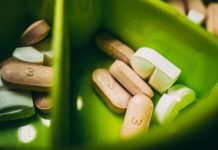Biotin is a popular over-the-counter supplement that is said to help with hair development. However, studies and professional opinion on the matter are divided on whether it prevents hair loss or even delivers any significant health advantages. Biotin, often known as vitamin B7, promotes hair keratin production and can speed up follicle growth. It is not kept in the body for lengthy periods of time, and the majority of yours comes from the meals you eat. It must be consumed in order to be effective.
Your hair will be less likely to fall out if it is stronger. Adults should eat 30 mcg per day, and women who are breastfeeding should increase their consumption to 35 mcg per day with the help of a physician. Vitamin E-rich foods, such as avocado and nut butter, can also help to maintain hair health. Finally, eat foods rich in omega-3 and omega-6 fatty acids, such as fish, walnuts, and chia seeds, to make sure you’re receiving enough. The majority of people benefit from taking 2,000mg of omega-3 fatty acids every day. Genetics, some drugs, and underlying illnesses like depression and stress are all common reasons for hair loss. Consult a doctor if you’re concerned about your hair loss. They may perform a physical examination and look into if your food or hair care routine is to blame. Furthermore, you may be lacking in essential vitamins that provide the building blocks for healthy regrowth of hair.
- Biotin for thinning hair has various known benefits, yet additional research is needed to examine its effects on hair growth.
- Biotin, for example, is one of numerous B vitamins that help to maintain a healthy metabolism. Biotin helps amino acids carry out regular biological tasks by converting glucose from carbs into energy.
Biotin is also thought to have the following properties:
- decreases inflammation
- enhance cognitive performance
- Diabetes patients can benefit from this by lowering their blood sugar levels.
- LDL “bad” cholesterol should be reduced while HDL “good” cholesterol should be increased.
Risks and warnings
- Increasing your intake of biotin-rich meals has no negative consequences. However, before adding a new supplement to your regimen, always with your doctor.
- Biotin has no known interactions, but you should check with your doctor before taking it with any other medications you’re taking.
- Your doctor can also provide you more specific advice on dose and possible adverse effects.
- Because biotin is a water-soluble vitamin, any excess biotin in your system will be excreted in your urine. As a result, an overdose is improbable.
- Consult your doctor right away if you get an odd or unexpected skin rash after increasing your biotin consumption. This is an indication of biotin overdose in rare circumstances.
To confirm an overdose, your doctor will look for the following signs:
- vitamin C deficiency
- vitamin B6 deficiency
- blood sugar levels are too high
- Insulin production is decreasing.
Biotin Deficiency
- People who eat a lot of raw egg whites may develop biotin deficiency. This is because raw eggs contain avidin, a protein that prevents biotin absorption. 4
- People with inflammatory bowel illness or other disorders that disturb the balance of gut flora may not be able to manufacture adequate biotin.
- Biotin deficiency (biotinidase deficiency) can be caused by excessive alcohol consumption, cirrhosis, or congenital biotin deficiency (biotinidase deficiency). Biotin deficiency can also be caused by a variety of drugs. Beta blockers, blood thinners, anticonvulsants, and retinoids are among them. 6
- Consult your healthcare professional if you observe any symptoms of biotin deficiency.









